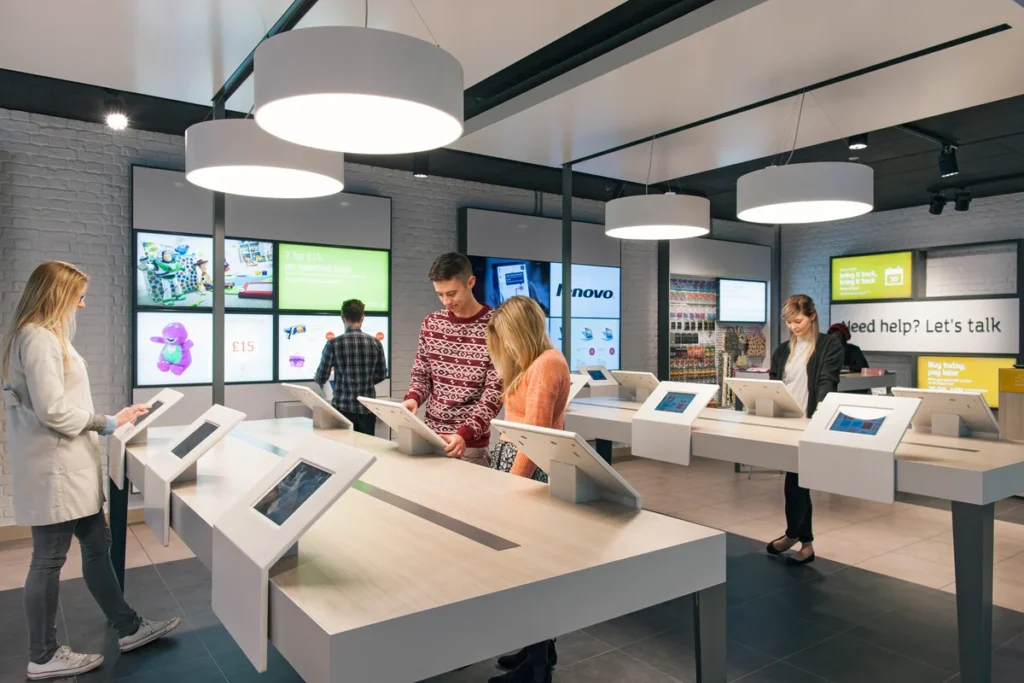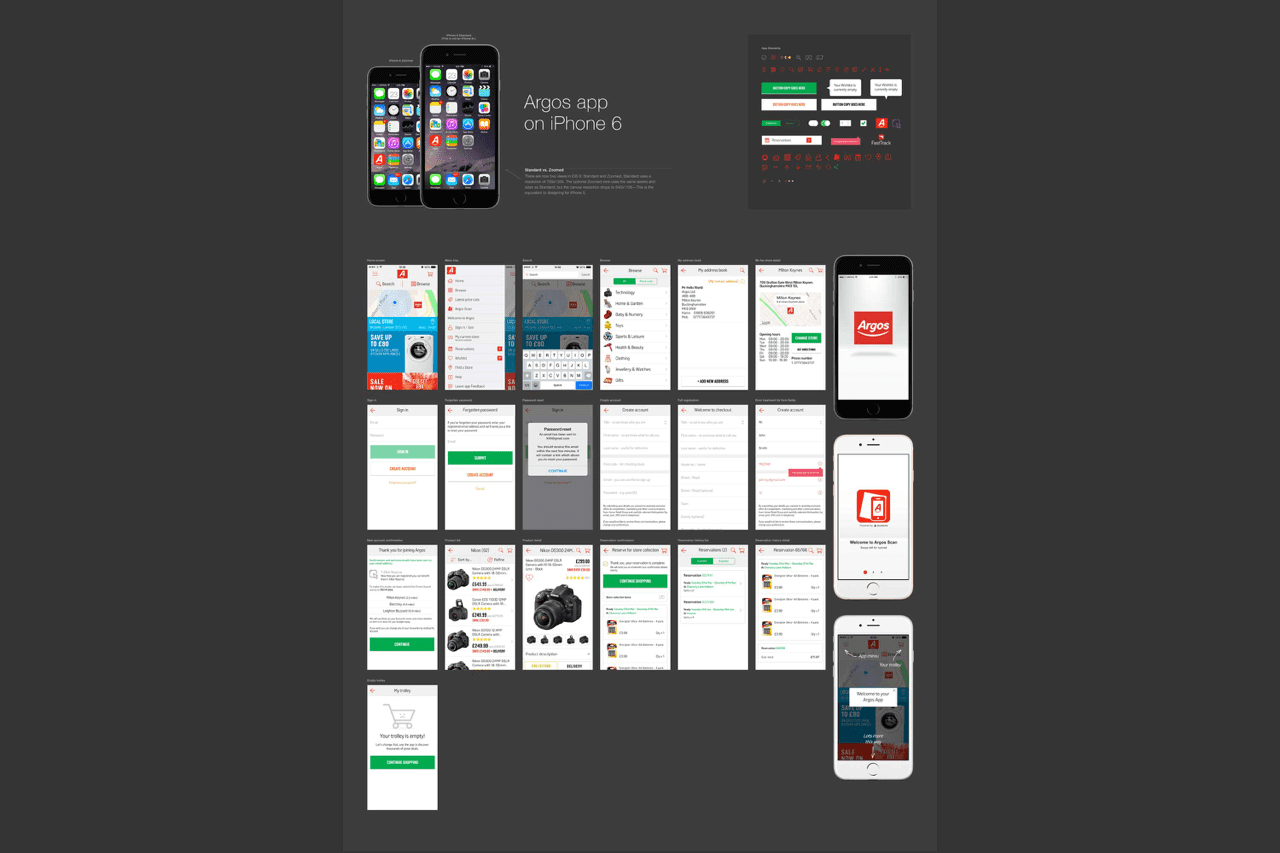Argos / Digital Transformation
Transform Argos from a catalogue retailer into a digital shopping leader
TIMELINE / 18 months (Mar 2014 – Oct 2015)
RESPONSIBILITIES / Research, Visual Design, Prototyping

The Background
The Challenge
The goal was ambitious:
Transform Argos from a catalogue brand into a digital-first retailer, without losing what customers loved about it: trust, simplicity, and accessibility. That meant completely reimagining how people shopped, both online and in-store, while building a modern, easy-to-use experience for millions of everyday customers. The experience needed to:
- Make shopping fast, simple, and personal
- Connect digital and physical stores seamlessly
- Modernise Argos’s look and feel without confusing loyal customers
Transform Argos from a catalogue brand into a digital-first retailer.
My Role
- Led design across Argos’s iOS, Android, and Web platforms
- Helped shape the visual identity for Argos’s new digital-first brand
- Designed key customer journeys for FastTrack, checkout, and product browsing
- Mentored other designers and worked closely with engineers and product managers to bring ideas to life
My Approach
1. Understanding Real Customer Needs
I started by talking to people, lots of them. I ran interviews, in-store observations, and user testing sessions to see how customers really behaved. I discovered that shoppers wanted:- Speed: no waiting around for information or checkout
- Clarity: easy-to-read layouts, fewer choices, faster decisions
- Confidence: knowing the stock was available before going to the store
2. Reimagining the Experience
I redesigned Argos’s key experiences from the ground up:
- Mobile & Web: Created a cleaner, simpler interface that made browsing and buying effortless, whether on a phone, tablet, or desktop.
- In-Store Browsers: Replaced the old paper catalogues with sleek digital touchscreens. These let customers search, check stock, and place orders instantly.
- FastTrack Service: Designed a new self-service experience that allowed customers to collect online orders in as little as 60 seconds.
The goal was to make shopping feel the same, simple and fast, whether you were online or in-store.
3. Creating Consistency Everywhere
With so many digital channels (apps, website, in-store screens), I needed to ensure everything looked and worked the same way. I helped build a shared design system, a library of reusable visual styles and components that made it faster for teams to design and develop new features while keeping a consistent experience for users. This allowed us to scale the new design across all Argos platforms efficiently.The Outcome
The transformation was a major success, not just for Argos, but for UK retail.
Result
- Over £1 billion in mobile sales
- Faster shopping experience
- Consistent experience everywhere
- Higher satisfaction & repeat visits
Impact
- Argos became the first UK retailer to reach this milestone, with over half its sales now digital.
- Customers could now collect online orders in under a minute, thanks to the FastTrack system.
- Whether shopping on mobile, desktop, or in-store, customers enjoyed the same modern, reliable interface.
- The new design improved customer confidence and led to more frequent engagement.
I helped Argos go from catalogue to cloud, creating a faster, friendlier, and more connected shopping experience for everyone.
































